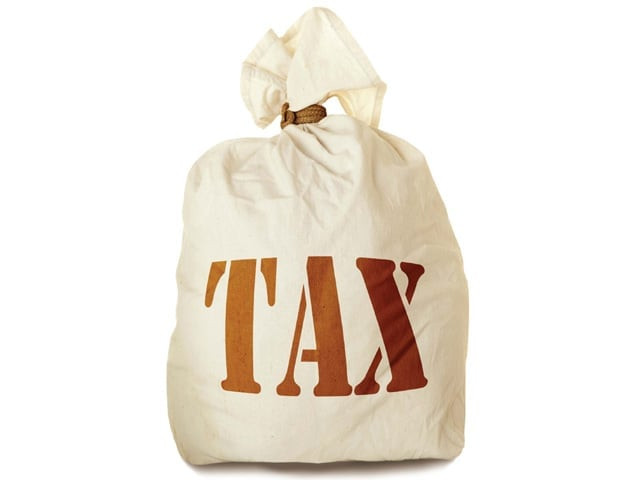Economic Survey 2010-11: Govt gives Rs167b tax exemptions
The amount is Rs37b more than US aid for the year.

The government has given Rs166.8 billion tax exemptions to the influential class of society in the current fiscal year, an amount which is Rs37 billion more than what the United States promised to give under the Kerry-Lugar aid package in a year, reveals the Economic Survey of Pakistan 2010-11.
Had there been no tax exemptions, the country’s budget deficit would have been restricted to 4.8 per cent of total national income, close to the revised deficit target. The exempted amount is 11 per cent or Rs16.4 billion more than last year’s tax exemptions. During financial year 2009-10, the government had given Rs150.3 billion tax exemptions.
In the outgoing financial year, slightly over 57 per cent of the exemptions were given on customs duties, over 15 per cent on sales tax and 28 per cent on income tax, states the Economic Survey. The exempted amount is Rs47 billion more than what the government wants to collect by levying additional taxes in the new financial year.
Though the government took some corrective measures by withdrawing tax exemptions on sales of fertilisers and tractors on March 15, still it is exempting all types of pharmaceutical products. The big chunk of the sales tax exemption comes under the head of ‘others’ and sectors that fall under this category is anybody’s guess.
The government gave Rs95 billion worth of customs duty exemptions, which is Rs18.6 billion or almost 25 per cent more than last year’s exemptions. The largest amount of Rs30.3 billion came under the head of general and conditional exemptions. In addition to this, Rs19 billion customs duties were waived in favour of original equipment manufacturers of the automobile sector. Besides, Rs9.4 billion duties were waived in favour of vendors of the auto sector.
An amount of Rs13.7 billion was waived on import of machinery, equipment and apparatus. The government also gave Rs10.8 billion customs duty exemptions on imports from China. The Federal Board of Revenue said some of these exemptions were due to international contractual obligations.
On sales of fertilisers and tractors, Rs6.9 billion and Rs4.9 billion sales tax exemptions were granted respectively. The figure is for the period from July to March 14 after which the government withdrew the exemptions and hoped to collect around Rs10 billion in the remaining three and a half months of the outgoing fiscal year.
On sales of pharmaceutical products, Rs4.1 billion tax exemptions were provided. In the ‘others’ category, Rs9.5 billion taxes were waived.
Under the head of income tax, the government gave Rs46.5 billion tax exemptions. Despite levying capital gains tax on the stock market, the government allowed Rs21.8 billion income tax exemptions, which is questionable. Last year, the CGT exemptions stood at Rs21.9 billion. The second largest amount of Rs20 billion was waived in favour of enterprises.
Tax paid by finance minister
According to tax data obtained from the office of Finance Minister Dr Abdul Hafeez Shaikh, he paid Rs85,173 in income tax from July 2010 through May 31. The tax has been paid on a monthly salary of Rs57,132 that he earns as finance minister. Official data shows that by end-June he will pay a total income tax of Rs92,916.
The minister’s monthly income tax comes to around Rs7,743, which is more than what the two-time former prime minister Mian Nawaz Sharif paid for the whole year. Nawaz Sharif is reported to have paid only Rs5,000 in income tax.
“I duly pay my all taxes on salary income and agriculture property,” said Shaikh. According to his office, Shaikh also paid over Rs9,200 in tax on his agricultural land, bringing his total tax liability to Rs102,116.
The finance minister is said to have paid taxes on assets he owns abroad, which is governed under the respective state’s income tax laws. Pakistan does not have laws to cover income earned abroad.
Published in The Express Tribune, June 3rd, 2011.
The full text of The Economic Survey 2010-2011 can be viewed here.


















COMMENTS
Comments are moderated and generally will be posted if they are on-topic and not abusive.
For more information, please see our Comments FAQ